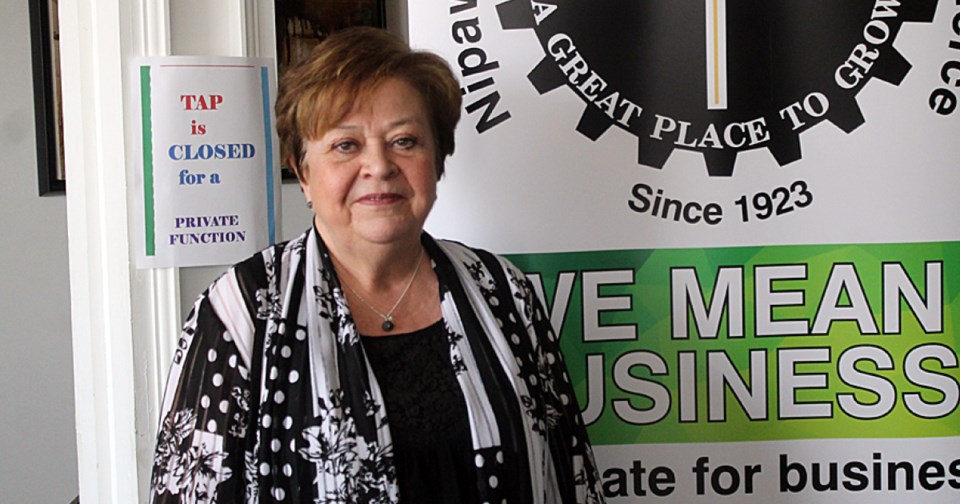NIPAWIN — Saskatchewan Finance Minister Donna Harpauer spoke to the Nipawin Chamber of Commerce about canola and oil.
Lisa Suchlandt, executive director for the chamber, said they invited Harpauer to give a chance to chamber members to ask questions and meet her.
“It’s really nice and important they get to meet all levels of government, and we actually hadn’t had the finance minister here before,” Suchlandt said.
This comes after a number of changes to the chamber, including the chamber no longer being on the board of trade as well as entering their first year not managing visitor services for the town or receiving funding from the town for doing it.
“I don’t think it’s just chamber members, I think everyone should be acquainted with all levels of government so they’re aware of what’s going on politically,” Suchlandt said. “It affects everybody. This was just an opportunity to bring the minister here for our members.”
She hopes to have her come back next year to do a presentation on the provincial budget.
Harpauer said a number of chambers typically ask her to meet with them after the provincial budget is made, with Nipawin being the 16th.
Nipawin’s talk was formatted as a low-key supper.
“This one is more relaxed, which is more enjoyable,” Harpauer said.
One question Harpauer said she received was how the budget will be impacted by the canola trade dispute.
“It will be negative, agriculture is a big commodity for our provincial budget.”
Another question asked received was, “Why is Canada losing investment?”
Harpauer put the blame on the Trans Mountain pipeline not being built yet.
“If we cannot get a pipeline done as a national project, this is being perceived as a country that can’t get anything done,” Harpauer said.
“Outside investors, and anyone looking to bring outside industry to Canada or looking to Canada as a place to start – you can’t have a country that doesn’t have it together enough in order to build a pipeline.”
The pipeline was halted in 2018, when in a unanimous decision, the federal court of appeal said the government failed to consider the concerns of some First Nations. The federal government is currently in a new phase of consultations to allow the pipeline to be built.
Harpauer said the Indigenous protestors against the pipeline aren’t directly affected by it.
“The Indigenous community, especially in the oil sands in Alberta, are crying for developing. They have done extremely well for it, but Indigenous leaders that are outside and not affected are the ones stopping it. On route, the Indigenous leaders want those jobs. They want that development, they want to be able to have it, and it’s great for their people,” Harpauer said.
“If you really dig into it there are really positive stories of First Nations that have gotten involved in the industry and did very well and used that money to help their own people.”
Harpauer said there wasn’t anything new in the budget for rural transportation at this time to replace STC.
“The numbers did not support there was enough people using the public transportation to support the cost of it. They simply don’t.”
She said that’s not unusual.
“We were the last province to run a provincial transportation system, and the reason why is they are not economical.”




